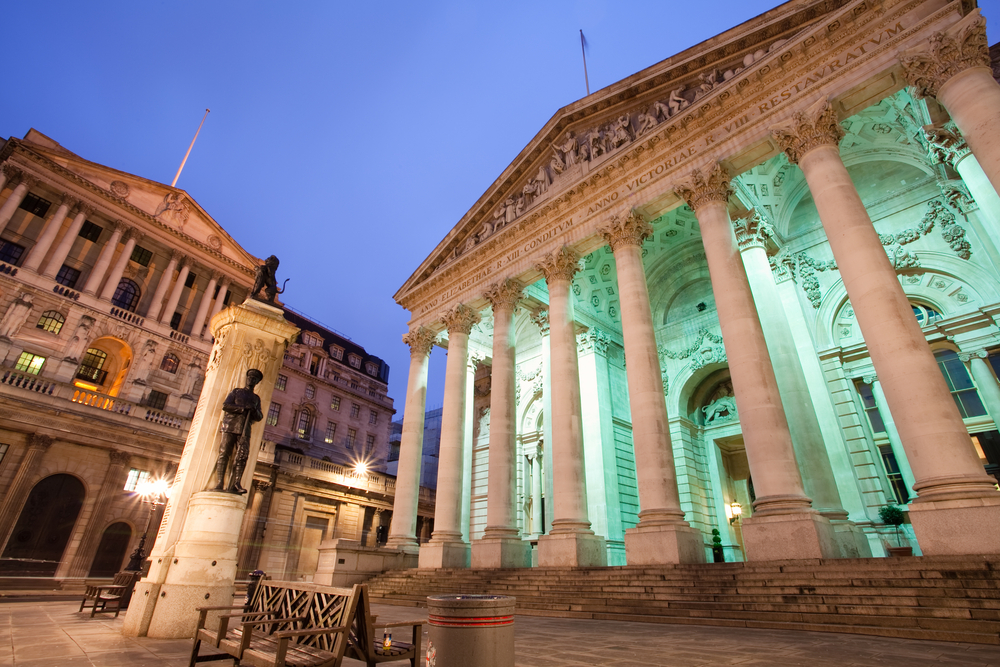Despite fears of a downturn following the vote to leave the EU, there is no clear evidence of a slowing in UK economic activity, according to the Bank of England. Its Agents´ Summary of Business Conditions survey for July found that in the month following the referendum the annual rate of growth has remained moderate, […]
 Despite fears of a downturn following the vote to leave the EU, there is no clear evidence of a slowing in UK economic activity, according to the Bank of England.
Despite fears of a downturn following the vote to leave the EU, there is no clear evidence of a slowing in UK economic activity, according to the Bank of England.
Its Agents´ Summary of Business Conditions survey for July found that in the month following the referendum the annual rate of growth has remained moderate, but business uncertainty had risen markedly.
It found that a majority of firms were not planning to change investment or staff hiring plans.
The Bank said the result was such a shock that few companies had contingency plans in place and so for the time being were taking a “business as usual” approach.
“A majority of firms spoken with did not expect a near-term impact from the result on their investment or staff hiring plans. But around a third of contacts thought there would be some negative impact on those plans over the next twelve months. As yet, there was no clear evidence of a sharp general slowing in activity,” the report said.
There were reports from agents of a dip in housing market sentiment after the referendum, but transactions had so far been more resilient than some contacts had expected.
Howard Archer, chief UK economist at IHS Global Insight, said: “The overall impression coming from the Bank of England’s regional agents’ survey is that there has been a limited immediate economic fall-out from the Brexit vote, but there is major uncertainty over the outlook and the potential for a marked slowdown.
“This partly reflects the fact that many companies had not expected a Brexit vote and are for now trying to pursue business as normal subject to strategic reviews.”
Jeremy Leaf, north London estate agent and a former RICS residential chairman, said: “The Bank of England’s findings bear out what we have seen since the referendum. Yes, many people have been knocked sideways by the result but since then, they have just been getting on with it.
“The fundamentals are still there, highlighted by today’s jobless figures which are very good. It is clear that people still want to get on. The Bank of England survey refers to a dip in housing market sentiment immediately following the referendum but transactions have been more resilient than expected. On the ground we have seen determination on behalf of people to negotiate hard and a new sense of realism emerge.”
Interest rate cut
The results of the survey will raise questions about whether the Bank will cut interest rates in August to help boost the economy.
Last week the Bank defied market expectations and elected to keep interest rates on hold at their record low of 0.50%.
At a meeting of its Monetary Policy Committee, it hinted that next month rates could be cut and the quantitative easing programme restarted.
“In the absence of a further worsening in the trade-off between supporting growth and returning inflation to target on a sustainable basis, most members of the Committee expect monetary policy to be loosened in August,” the minutes said.
Analysts are widely predicting that the Bank will cut interest rates to 0.25% in August.
This would be good news for borrowers. According to data from the Council of Mortgage Lenders, this would save someone £26 a month with a 25-year mortgage on a home worth 200,000.
Archer said that while the economy may have dodged an immediate sharp slowdown from the Brexit vote, there was still a danger of an economic downturn given the uncertainty.
He said: “There seems a compelling case for the Bank of England to deliver a substantial package of measures at its August meeting to try and bolster business and consumer confidence.
“We expect the Bank of England to cut interest rates from 0.50% to 0.25% at the 4 August MPC meeting.”
Employment at record high
The latest figures from the Office of National Statistics have revealed that UK employment is at a record high.
The employment rate hit 74.4% in the three months to May, with 31.7 million people in work, up 176,000 on the previous quarter.
The number of people out of work has now fallen to 1.65 million – down by 54,000 from the previous period – with the unemployment rate now at 4.9%. Wage growth has also risen slightly, with average earnings up by 2.3%.
Chancellor Phillip Hammond said the figures were proof that the “fundamentals of the British economy are strong”.
He said: “In the months before the referendum, employment in the UK reached a new record high, unemployment fell to its lowest in a decade and wages continued to rise.
“As the economy adjusts to the effect of the referendum decision, it is doing so from a position of economic strength.
“While the decision to leave the European Union marks the beginning of a new phase for our economy, the message we take to the world is this: our country remains open for business and we are the same outward-looking, globally-minded, big-thinking country we have always been.”














